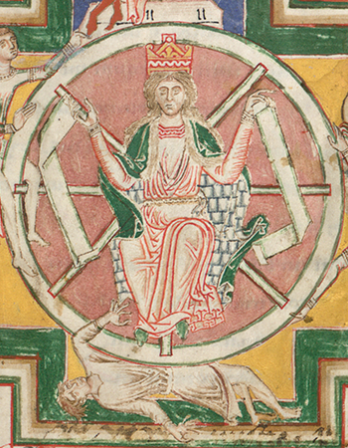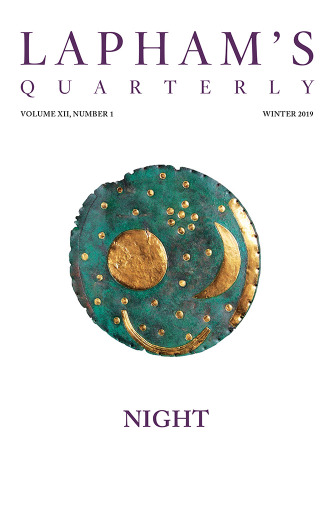Almsgiving tends to perpetuate poverty; aid does away with it once and for all.
—Eva Perón, 1949Visitation Rites
Suggestions to friendly visitors among the poor.
General suggestions to friendly visitors among the poor:
The best means of doing good to the poor is found in friendly intercourse and personal influence. The want of money is not the worst evil with which the poor have to contend; it is in most cases itself but a symptom of other and more important wants. Gifts or alms are therefore not the things most needed, but sympathy, encouragement, and hopefulness.
Never state the object of a visit as being to see whether any relief is wanted, for the visits of one who is regarded only as a person from whom something is to be got are rather worse than useless. Let it be seen that your visit is intended to establish friendly relations, and is prompted by a neighborly interest.
Be on your guard against encouraging idleness, improvidence, or grosser misconduct, directly or indirectly. Injudicious procurement of alms for the family of a drunkard, or a dissolute, idle, or shiftless person, will invariably do more harm than good.
The best method of assisting deserving people when in need is to help those who are able to work to find employment. In seeking employment for the poor, care should be taken not to find it in occupations or associations detrimental to health or character, or which would place the applicants in the way of temptation, or compel them to incur obligations that would lower their independence and self-respect.
Do all you can to encourage the formation of provident habits. Urge the very poorest to lay by something, however little, in the savings bank, or for future supplies of fuel, flour, etc.; endeavor to induce them to join a provident dispensary, or some of the many mutual beneficial societies; explain the nature and advantages of these institutions, and if necessary offer to go with them when they make their first payment.
The poor, as a rule, have never learned “the power of littles.” The habit of watching where the pennies go, and of laying up against a rainy day, is generally wanting to them. A word in season may be of use to keep spare money out of the whiskey seller’s till, and to get it put to better use.
Whenever you perceive a want of personal and household cleanliness, or a neglect of proper ventilation, take an opportunity of advising and even urging the importance of improvement. These points are so essential to health that it is always advisable to keep urging the matter until a change is made.
Where families are being contaminated by vicious surroundings, endeavor to persuade them to remove to another dwelling, or to a better neighborhood.
Cultivate the habit of looking below the surface of things, and not judging by first impressions. The poor who have the strongest claim upon our sympathy are generally the silent, sensitive, painfully respectable people, whose clean and tidy rooms conceal to the utmost the evidence of their poverty. They must be sought out with delicacy, and treated with the utmost courtesy.

Prometheus, by Paul Manship, 1934. fototehnik / Shutterstock.com.
Those who have the greatest need to be economical in their purchases are often much less so than other classes. They buy the most expensive articles of food, the least substantial articles of dress, and even costly, cumbersome, and inconvenient pieces of furniture. They have not learned the best ways of preparing food. On these and many other points of thrift good advice will be worth more than money. But in most cases the subject must be approached with care, to avoid every appearance of censoriousness or meddlesomeness.
In every case seek to foster a spirit of self-respect and independence. Our poor friends should be encouraged to feel how great is the gulf between honest poverty and the pauperism that is willing to rely upon gifts and alms.
Although there is abundant provision made for public education, a very large proportion of poor children get little, and some of them none at all. They are allowed to run about the streets in idleness, or they are sent to earn a few pennies that are not always indispensable to the support of the family. Try to awaken and cherish right feeling in this subject, that parents may be induced to make sacrifice for their children’s sake.
Foster the pride of home; help to make the dwelling cheerful by the gift of such articles as cannot pauperize, but which, on the contrary, tend to elevate and refine the tastes.
Avoid the appearance of dictation; also of inquisitiveness. Never repeat to others what you may learn in the families you visit. Give sympathy, but do not lead them to be discontented; their lot is hard enough, do not make it harder; give courage, energy, and hope. Do not be discouraged or disappointed—the habits of a lifetime are not to be corrected in a day. Be patient as you would be with your own children; appeal to their better selves from your own better self.
Let your visits at a house be at irregular periods. If you go once a week, never choose the same day in every week.
The deed is everything, the glory naught.
—Johann Wolfgang von Goethe, 1832The poorest poor are those who have no wholesome contact with society or with each other. They are those who have fallen into a sordid, isolated, and indifferent life that is more animal than human. Your first aim should be to strengthen their family ties, “to turn the hearts of the fathers to the children,” of husband to wife. Seek to awaken and cherish their home affections, to cultivate courtesy of speech and manner, and to prompt the little mutual sacrifices which make life gracious; and encourage every effort to make home a pleasant and attractive place.
It is wisest to work for the results that come in the long run, to anticipate disappointments, and not to be disheartened by them. The most successful visitor will have discouraging experiences and, perhaps for a time, little else. The greatest patience, the most decided firmness, and an inexhaustible kindness are all needed in this work. Brave workers are patient and persistent, and do not insist on immediate or startling results.
About This Text
From Handbook for Friendly Visitors Among the Poor. Inspired by a London-based organization cofounded by social reformer Octavia Hill, the Charity Organization Society of the City of New York was established in 1882 by Josephine Shaw Lowell to “check the evils of overlapping relief” and offer assistance that promoted structural and lifestyle reforms among the poor. Composing and distributing the Handbook was an early undertaking. “The repression of mendicancy,” declared the society in an annual report, “is announced as a distinct object.”



